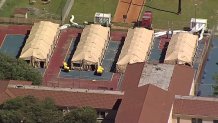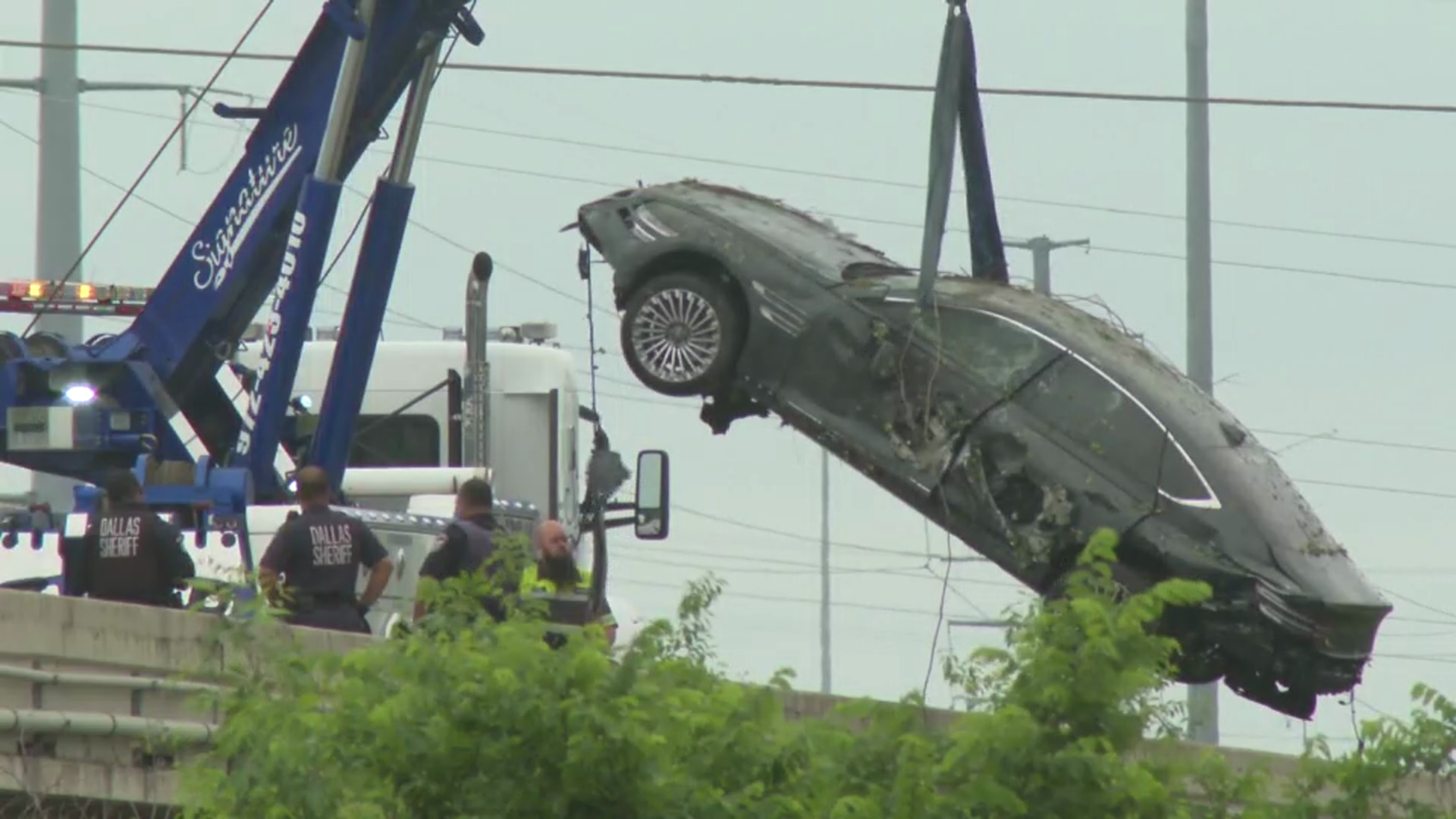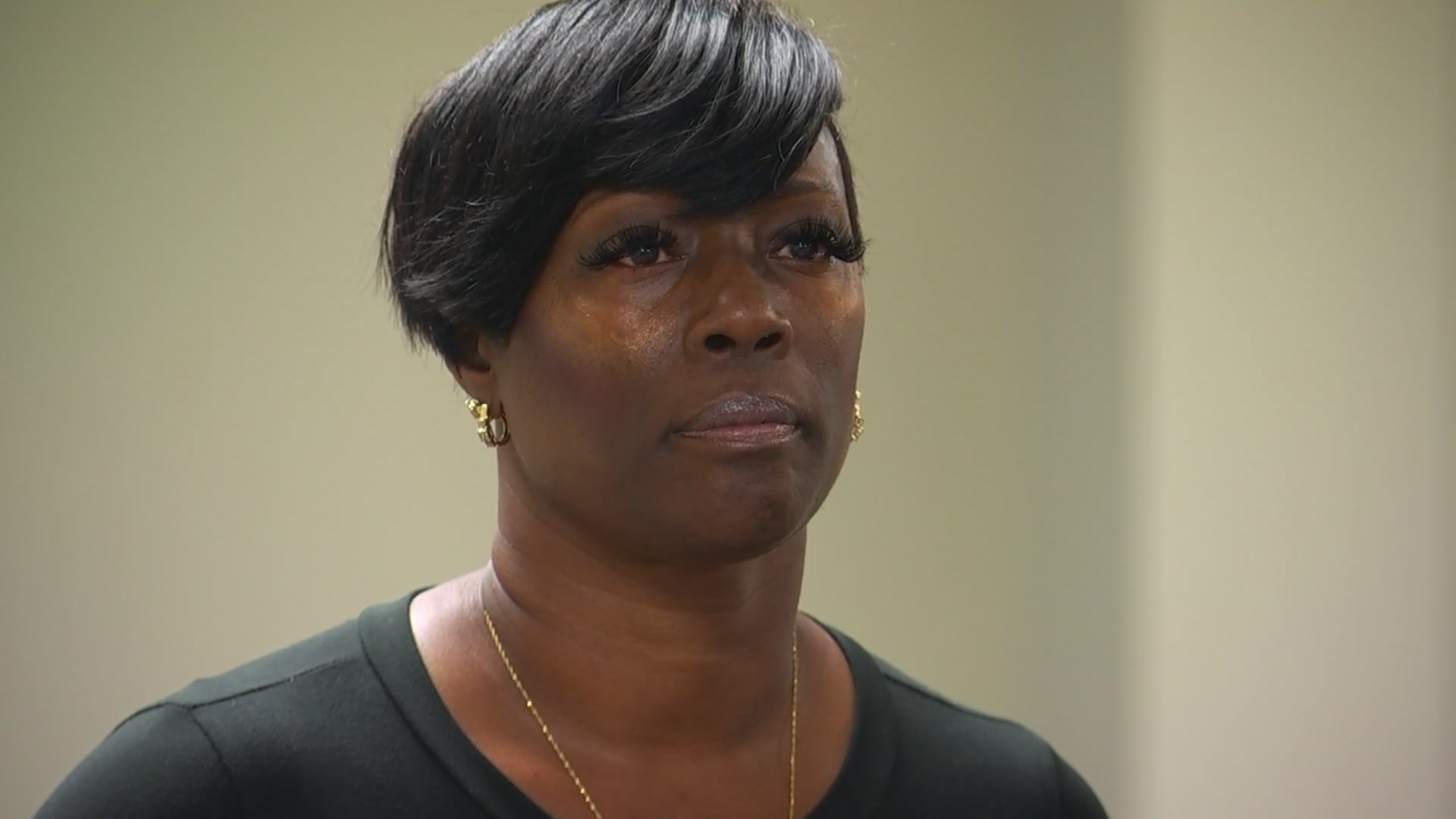In a scene strikingly similar to a war-time military field hospital, the Federal Medical Center prison in Fort Worth has erected huge tents on its sprawling campus to help deal with what has become the state’s largest cluster of people sick with COVID-19.
As of Friday, at least 439 inmates have tested positive for the virus and three have died, making the all-male prison one of the hardest hit in the country for lockups run by the Federal Bureau of Prisons. The number of reported cases in the Fort Worth facility jumped by more than 100 on Friday compared to the previous day.
Of the more than 300 guards and other workers at the prison, only one so far has tested positive for COVID-19.
But they share a concern that they too, could become infected and could take the virus home to their families, prompting some to instead sleep at the prison, away from loved ones, according to the president of the union that represents correctional officers at the facility.
The virus could not have picked a worse place to land – a huge medical prison where nearly all of its approximately 1,500 inmates are elderly or have some other type of underlying medical condition.
The large tents, recently erected in what had been the prison’s back recreational area, could house up to 123 inmates, NBC 5 Investigates has learned.
Local
The latest news from around North Texas.
Inmates relocated to the tents, will be the ones who are recovering from the virus and are no longer showing symptoms after 14 days in quarantine, according to a spokesperson for the Federal Bureau of Prisons.
“We have a setup where you have cots and mattresses in there. We have access to faucets, bathrooms, and showers that have hot water,” said Gregory Watts, a correctional officer and union leader at the prison whose co-workers helped set-up the tent hospital.
Watts said the correctional officers, medical teams and other workers are doing everything they can to care for the inmates, and to keep the virus contained within the facility.
“We’re here to make sure we keep these inmates safe and make sure they get adequate medical care as well. And we want to keep the community safe, as well -as first responders,” he said.
Watts said that despite the fears and anxiety, his co-workers are finding strength in each other.

“I’ve been working at our facility for 27 years and I am amazed at how well everybody has come together,” he said.
Despite its status as a medical treatment center for the federal prison system, the Bureau of Prisons told NBC 5 Investigates it has no plans to move any COVID-19 patients from other prisons to FMC Fort Worth for treatment.
Opened in 1971, the Federal Medical Center’s structural layout makes it hard for inmates to go into isolation.
To limit their movements, the prison’s staff is delivering food and clean laundry to the inmates.
The medical prison is the current home for Joseph Maldonado-Passage, better known as “Joe Exotic” in the popular Netflix documentary, “Tiger King.”
Maldonado-Passage, who was reported to have been in quarantine, is serving time for a murder-for-hire plot to kill an animal rights activist critical of his traveling zoo – a case that became a hit on Netflix.
Former inmates at the prison include Michael Fortier, co-conspirator and star prosecution witness in the 1995 Oklahoma City bombing; and James McDougal, a former financial partner with then-Arkansas Gov. Bill Clinton, who was convicted of fraud.
In 1998, while in custody at the medical center, McDougal suffered a fatal heart attack, ending plans for him to act as a witness against Bill and Hillary Clinton in an investigation of a land deal known as “Whitewater.”
*Map locations are approximate, central locations for the city and are not meant to indicate where actual infected people live.



